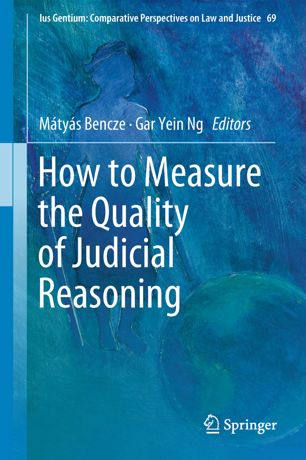

Most ebook files are in PDF format, so you can easily read them using various software such as Foxit Reader or directly on the Google Chrome browser.
Some ebook files are released by publishers in other formats such as .awz, .mobi, .epub, .fb2, etc. You may need to install specific software to read these formats on mobile/PC, such as Calibre.
Please read the tutorial at this link: https://ebookbell.com/faq
We offer FREE conversion to the popular formats you request; however, this may take some time. Therefore, right after payment, please email us, and we will try to provide the service as quickly as possible.
For some exceptional file formats or broken links (if any), please refrain from opening any disputes. Instead, email us first, and we will try to assist within a maximum of 6 hours.
EbookBell Team

0.0
0 reviewsThis edited volume examines the very essence of the function of judges, building upon developments in the quality of justice research throughout Europe. Distinguished authors address a gap in the literature by considering the standards that individual judgments should meet, presenting both academic and practical perspectives. Readers are invited to consider such questions as: What is expected from judicial reasoning? Is there a general concept of good quality with regard to judicial reasoning? Are there any attempts being made to measure the quality of judicial reasoning? The focus here is on judges meeting the highest standards possible in adjudication and how they may be held to account for the way they reason.
The contributions examine theoretical questions surrounding the measurement of the quality of judicial reasoning, practices and legal systems across Europe, and judicial reasoning in various international courts. Six legal systems in Europe are featured: England and Wales, Finland, Italy, the Czech Republic, France and Hungary as well as three non-domestic levels of court jurisdictions, including the Court of Justice of the European Union (CJEU). The depth and breadth of subject matter presented in this volume ensure its relevance for many years to come.
All those with an interest in benchmarking the quality of judicial reasoning, including judges themselves, academics, students and legal practitioners, can find something of value in this book.